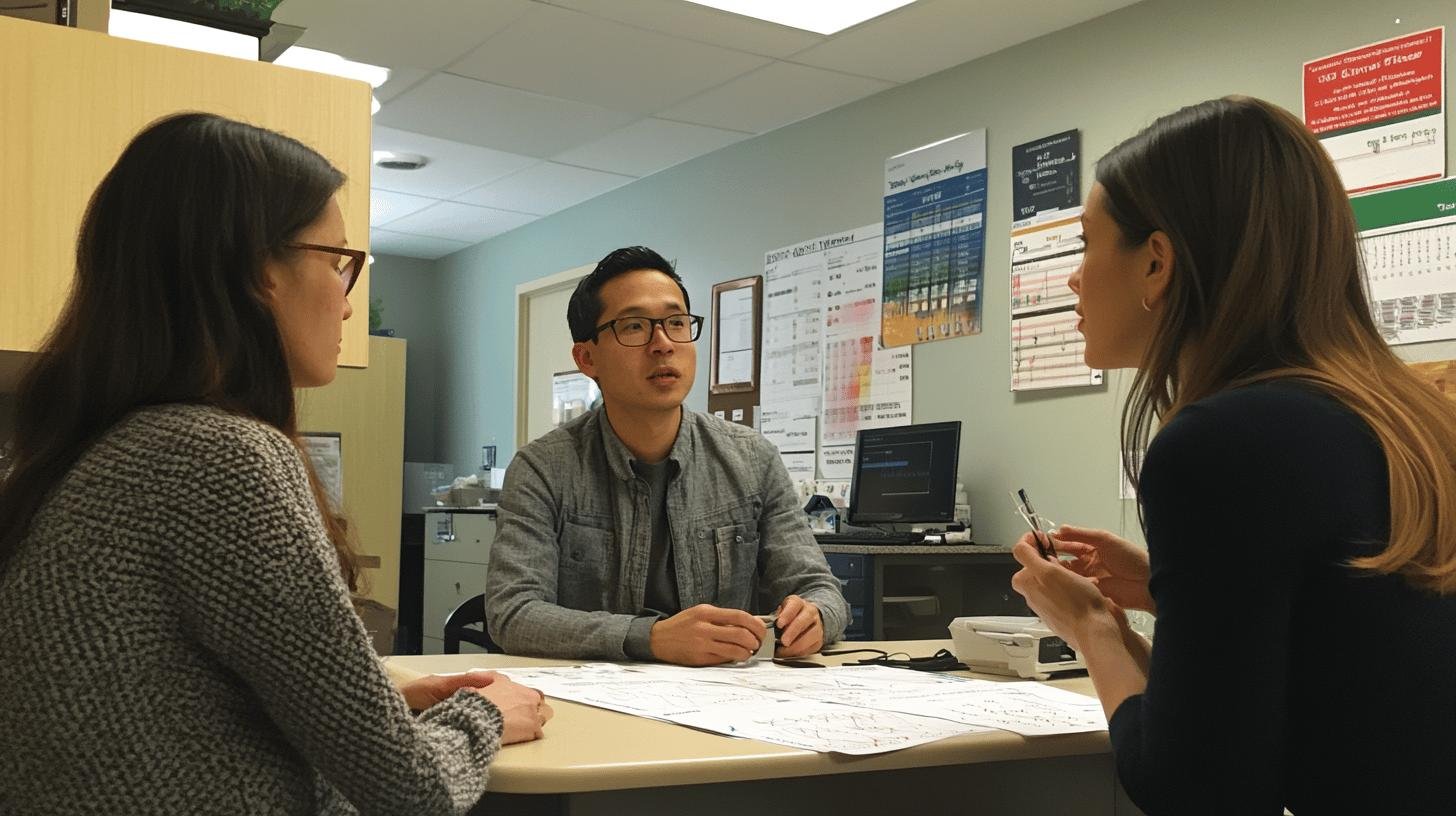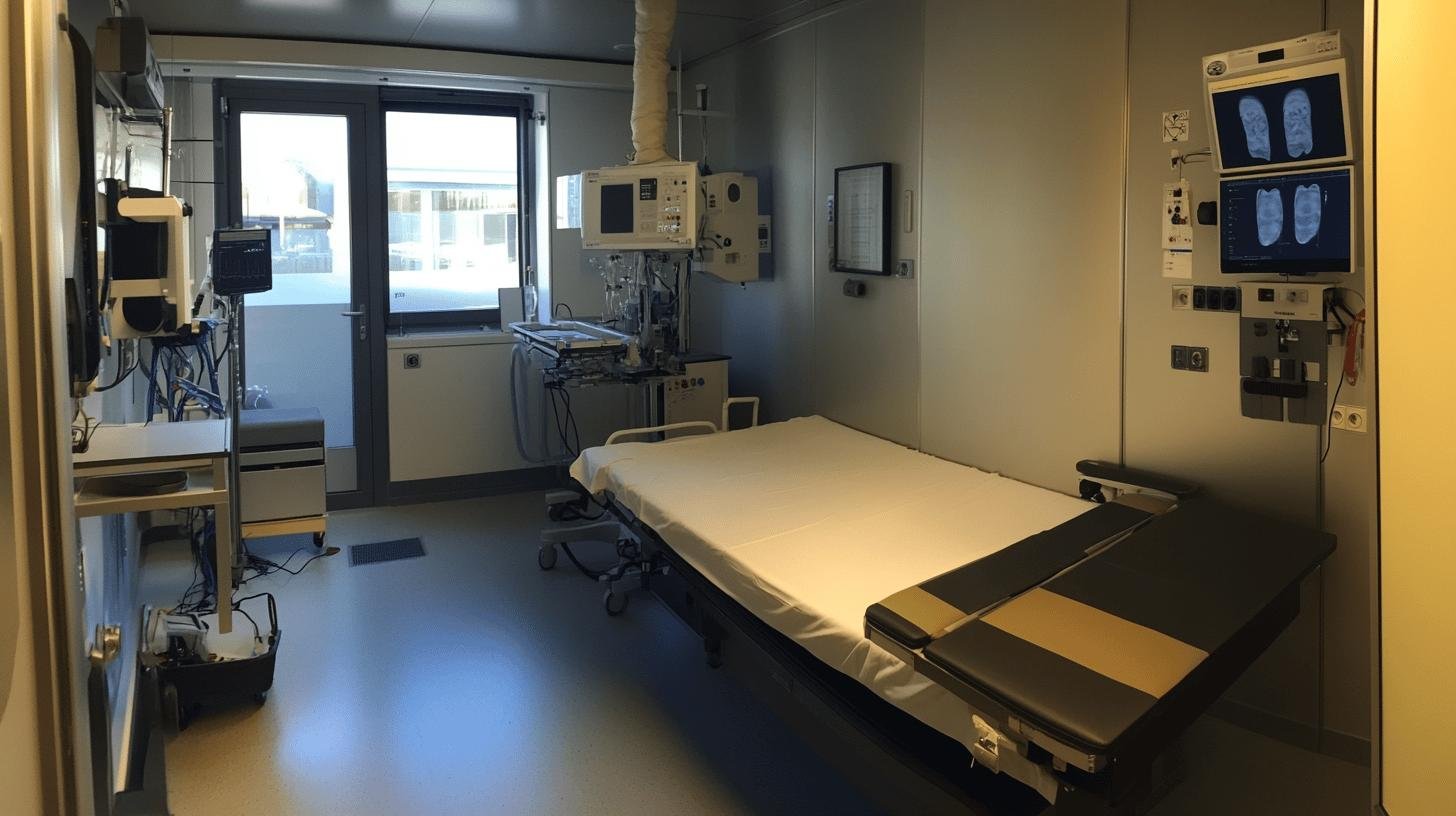TL;DR:
- Comprehensive Cancer Care is a holistic approach that addresses physical, nutritional, emotional, psychosocial, spiritual, and financial needs.
- Integrated Treatments: Combines traditional therapies (chemotherapy, radiation) with complementary therapies (acupuncture, nutrition).
- Patient-Centered Care: Tailors treatment to individual needs, preferences, and values with supportive services.
- Advanced Technologies:
- Radiation Therapy: High-energy rays targeting tumors.
- Immunotherapy: Boosts the immune system against cancer.
- Precision Medicine: Customizes treatment based on genetic makeup.
- Survivorship Care: Offers structured support for long-term health and recovery, including rehabilitation, lifestyle counseling, and psychological support.
Have you ever found yourself lost in the labyrinth of cancer treatment options? You’re not alone. Many of us wonder what truly matters when facing cancer, and we ask the question, ‘what is comprehensive cancer care?’. That’s where comprehensive cancer care comes in like a superhero, covering all bases. This approach goes beyond traditional treatment by addressing everything from physical to emotional needs. Imagine a one-stop shop for cancer care that not only aims to improve outcomes but also enhances the quality of life. By blending multiple aspects of care, comprehensive cancer care offers a holistic treatment plan tailored just for you. Curious to learn more? Let’s dive in!
Understanding Comprehensive Cancer Care
Comprehensive cancer care is like a comforting shield that addresses every need during a cancer battle. It’s designed to improve outcomes and quality of life by focusing on physical, nutritional, emotional, psychosocial, spiritual, and financial aspects. Think of it as a holistic approach that doesn’t only target the tumor but cares for the entire person. This isn’t just about disease treatment; it’s about enriching every part of a patient’s life through and beyond treatment.
Here’s a quick look at what comprehensive cancer care includes:
- Physical Support: Managing symptoms and side effects through therapies and treatments.
- Nutritional Support: Offering diet and nutrition guidance for recovery.
- Emotional Support: Providing counseling and therapy to deal with emotional challenges.
- Psychosocial Support: Establishing support networks among family, friends, and groups.
- Spiritual Support: Offering resources to meet spiritual or religious needs.
By blending these care aspects, comprehensive cancer care creates a more supportive treatment experience. Patients often feel more supported and less alone when these elements are part of their care. It’s like having a team that not only fights the cancer but also uplifts your spirit and stabilizes your life. So, when someone asks about comprehensive cancer care, you can say it’s about caring for the whole person, not just the disease.
The Role of Integrated Treatments in Cancer Care

Facing cancer? Integrated cancer care is like assembling a dream team. It combines traditional treatments—like chemotherapy and radiation—with complementary therapies to improve care and life quality. Think about acupuncture, nutrition, and mind-body techniques easing your journey. The essence of these treatments is not just blasting cancer cells; it’s focusing on you, the person with cancer.
Picture a multidisciplinary team of experts crafting a personalized care plan for you. Each specialist contributes, whether it’s a dietitian fine-tuning your nutrition or a therapist aiding your emotional health. This teamwork ensures every health aspect is addressed. It’s like having an all-star crew dedicated to your care, ensuring you’re not just surviving but thriving.
Benefits of Integrated Treatments
Why choose integrated treatments? They can notably reduce symptoms and improve life quality. Acupuncture, for example, can ease nausea and pain, making chemotherapy more bearable. Don’t overlook nutrition; a balanced diet helps your body heal. By combining these therapies, you receive a treatment that’s life-enhancing. This approach transforms integrated cancer care into a game-changer.
Patient-Centric Support in Comprehensive Cancer Care
Have you heard of patient-centered care? It places you, the patient, at the heart of the treatment plan. This model is vital in cancer care as it focuses on your specific needs, preferences, and values. Instead of a generic approach, patient-centered care tailors everything to you, managing not just cancer, but the entire journey. It’s like having a personal roadmap guiding you through treatment, ensuring you’re a voice, not just a number.
Supportive care is the magic ingredient in effective patient-centered care. Here’s a snapshot of these services:
- Emotional Support: Counseling and therapy to process cancer’s emotional toll.
- Psychological Support: Mental health services for anxiety, depression, or stress.
- Social Support: Building networks through family, friends, and community groups.
- Spiritual Support: Resources for spiritual or religious needs during treatment.
- Symptom Management: Techniques to alleviate pain and discomfort.
- Caregiver Support: Resources for caregivers to manage duties and reduce burnout.
How do these services make a difference? They transform cancer care into a community-supported journey. By addressing emotional, psychological, and social factors, these services provide a secure environment for patients and families. They foster understanding and empowerment, allowing you to focus on healing and living fully, not just surviving. It’s like having a comprehensive support package, aiding you and your loved ones throughout the cancer journey.
Advanced Technologies and Treatments in Cancer Care

Let’s explore the exciting world of cancer treatment advancements! These cutting-edge technologies are revolutionizing effectiveness and accessibility in comprehensive cancer care. Picture a toolbox brimming with the latest gadgets to battle cancer from all sides. From radiation therapy targeting tumors precisely to immunotherapy empowering your immune system, these innovations are changing how we combat cancer.
Radiation therapy and immunotherapy are stars in this lineup. Radiation therapy uses high-energy rays to target cancer cells, shrinking tumors with precision. It’s like having laser-focused superhero powers! Immunotherapy enhances your immune system, helping it recognize and fight cancer cells. These methods target cancer effectively with fewer side effects, making treatment manageable.
| Technology | Description | Advancements |
|——————–|————————————————————–|——————————————————-|
| Radiation Therapy | Uses high-energy rays to shrink tumors | Precision targeting and reduced side effects |
| Immunotherapy | Boosts the immune system to fight cancer | Personalized vaccines and checkpoint inhibitors |
| Precision Medicine | Tailors treatment based on genetic makeup | Identifies specific genetic mutations for tailored plans |
These technologies pave the way for personalized, effective cancer care. Tailoring treatments to individual genetic profiles, precision medicine personalizes care to a new level. Treatments aren’t generic—they’re designed for you. Personalized plans can lead to better outcomes and smoother cancer journeys. Next time you hear about advanced treatments, know they’re about enhancing lives, not just fighting cancer.
The Importance of Follow-Up and Survivorship Care
Survivorship programs are crucial for maintaining long-term health post-cancer treatment. They provide structured support for cancer survivors adjusting to a new normal. Why are these programs vital? They address not only physical recovery but also emotional and social healing. They equip you with tools to manage life after cancer, helping prevent recurrence. Plus, they guide healthier living habits, significantly boosting well-being.
Components of Survivorship Care
Survivorship care isn’t a generic solution. It’s packed with elements for specific survivor needs:
- Rehabilitation: Helps regain strength and function.
- Lifestyle Counseling: Offers advice on diet, exercise, and healthy living.
- Regular Health Monitoring: Keeps track of health changes.
- Psychological Support: Provides mental health resources for post-treatment life.
- Social Support Networks: Connects survivors to community and peer support.
- Management of Late Effects: Addresses long-term treatment side effects.
Follow-up care is your secret weapon against recurrence and managing late effects. It’s like having a trusty ally watching over your health, keeping you on track. Regular check-ups and monitoring catch potential cancer recurrence early, giving you a head start. It’s about staying proactive and focusing on living your best post-cancer life.
Final Words
Exploring what is comprehensive cancer care has painted a clear picture: it’s about addressing every aspect of a patient’s journey.
From integrating traditional and complementary treatments to delivering patient-centric support, the focus is always on improving outcomes and quality of life.
Advanced technologies like immunotherapy and radiation therapy are game-changers, offering precision and effectiveness. And let’s not forget the importance of follow-up and survivorship care in managing the long haul.
Embracing this holistic approach ensures every patient feels cared for, understood, and empowered. Here’s to a future where cancer care meets every need with compassion and innovation!
FAQ
What is comprehensive cancer treatment?
A comprehensive cancer treatment involves addressing the full range of physical, emotional, nutritional, and financial needs. The goal is to improve overall patient outcomes and enhance their quality of life.
What is the difference between a cancer center and a comprehensive cancer center?
A comprehensive cancer center offers a more holistic approach, integrating various services like supportive care and research to address all aspects of a patient’s well-being, beyond just treatment.
How many NCI Comprehensive Cancer Centers are there?
There are around 71 NCI-designated Comprehensive Cancer Centers across the United States. These centers meet rigorous standards for research, treatment, and education.
What are the original three comprehensive cancer centers?
The original three comprehensive cancer centers are the MD Anderson Cancer Center, Roswell Park Comprehensive Cancer Center, and the Memorial Sloan Kettering Cancer Center.
What are the different types of cancer care?
Cancer care types include traditional treatments like surgery, chemotherapy, and radiation, along with complementary therapies like acupuncture, nutrition support, and mind-body techniques.
Where are comprehensive cancer centers located?
Comprehensive cancer centers are located throughout the United States, including main cities and academic institutions, providing access to high-standard care nationwide.
Are there any comprehensive cancer centers in Las Vegas?
As of now, there are no NCI-designated Comprehensive Cancer Centers in Las Vegas. However, various regional centers offer advanced cancer treatments and supportive care.
What are the top 25 cancer centers?
Top cancer centers are generally ranked based on research output, treatment options, and patient care quality. These can include centers such as Mayo Clinic and Cleveland Clinic. Exact rankings may vary by criteria.
How do integrated treatments benefit cancer care?
Integrated treatments combine traditional methods with complementary therapies, reducing symptoms and improving life quality. Therapies like acupuncture and nutrition make treatment more holistic and personalized.

